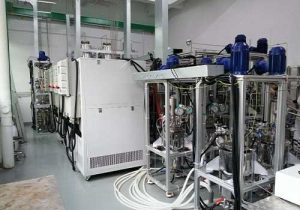water cooled chiller cycle
Water Chiller AC Units: Cooling Solutions for Diverse Applications
Water chiller AC units are essential in maintaining comfortable temperatures in commercial buildings, industrial processes, and scientific laboratories. These units work by circulating chilled water through a system of pipes, cooling the air or equipment they are designed to regulate.

Operation of Water Chiller AC Units
Water chiller AC units operate by using a refrigeration cycle to cool water, which is then circulated through the system. The cooled water absorbs heat from the area or equipment, providing a cooling effect. The water is then returned to the chiller to be cooled again, and the cycle continues.
Types of Water Chillers
There are two main types of water chillers:
Air-Cooled Chillers: These use ambient air and a condenser fan for heat rejection, making them suitable for areas with limited water resources.
Water-Cooled Chillers: They rely on a water source, such as a cooling tower, for more efficient heat dissipation in warmer climates.
Factors Influencing the Cost of Water Chiller AC Units
The cost of a water chiller AC unit can vary based on several factors:

Cooling Capacity: Larger capacity chillers are typically more expensive due to the increased size and power requirements.
Energy Efficiency: Chillers with higher energy efficiency ratios (EER) and coefficient of performance (COP) can reduce operating costs over time, potentially offsetting the higher initial cost.
Refrigerant Type: The choice of refrigerant can affect both performance and environmental impact, with eco-friendly options often being more costly.
Maintenance and Efficiency
Regular maintenance is crucial for the efficiency and longevity of water chiller AC units. This includes cleaning the condenser, checking for refrigerant leaks, and ensuring the proper operation of the compressor and pumps.

Environmental Considerations
The environmental impact of water chiller AC units is influenced by the refrigerant used. Modern chillers are designed to minimize the use of harmful refrigerants and maximize energy efficiency, contributing to a smaller carbon footprint.
Conclusion
Water chiller AC units offer a versatile and efficient cooling solution for a wide range of applications. By understanding their operation, types, and the factors that influence their cost and efficiency, users can make informed decisions when selecting the appropriate chiller for their needs. The advancements in chiller technology continue to improve the performance and sustainability of these essential HVAC components.
This article provides a comprehensive guide to water chiller AC units, discussing their operation, types, and the considerations for their selection and maintenance. It emphasizes the importance of choosing the right chiller for specific cooling needs and highlights the advancements in cooling technology that have made these systems more accessible and efficient.
Related recommendations
water cooled chiller types
204Working PrincipleReciprocating water cooled chillers use reciprocating compressors. These compressors operate through the back - and - forth motion of a piston within a cylinder. The refrigerant ...
View detailsThe Importance of Cleaning Your Chiller Every Day
1148The Importance of Cleaning Your Chiller Every Day The industrial chiller has some minor faults and the maintenance cost is very high, in order to avoid unnecessary expenses. The chiller manu...
View detailsindustrial water chillers for sale
562Industrial Water Chillers for Sale: A Comprehensive Guide Industrial water chillers are critical components in a variety of manufacturing and commercial processes where precise temperature cont...
View detailswater bath pump
521Introduction to Water Bath PumpsWater bath pumps are essential laboratory equipment used to maintain a constant temperature for samples in various applications, including chemical, biological, and...
View details
 LNEYA Chiller
LNEYA Chiller





HelloPlease log in